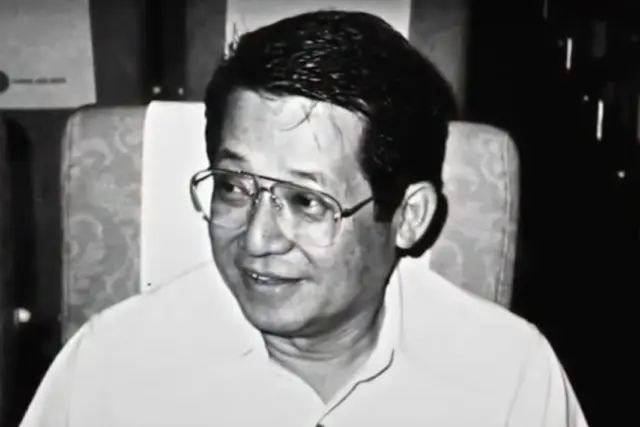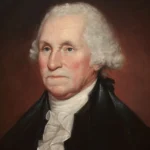
Ninoy Aquino, a prominent figure in Philippine history, is celebrated for his unwavering commitment to democracy, human rights, and freedom of speech. His life and legacy have left an indelible mark on the nation, particularly through his courageous opposition to the authoritarian regime of Ferdinand Marcos. From his posthumous recognition by the U.S. government to the pivotal role he played in the fight for democracy, Aquino’s story is one of resilience and inspiration. Here, we explore some key facts about his life, including his awards, political philosophy, physical attributes, and the profound influence he had on the Philippines.
Birth Date: Ninoy Aquino was born on November 27, 1932, in Concepcion, Tarlac, Philippines. His birth name was Benigno Simeon Aquino Jr. He was born into a prominent political family, which laid the groundwork for his future involvement in politics. His mother, Aurora Aquino, was a homemaker, while his father, Benigno Aquino Sr., was a well-known politician who served as a senator and was the first governor of the province of Tarlac.
Death Date: Ninoy Aquino was assassinated on August 21, 1983, upon his return to the Philippines after nearly three years in exile in the United States. His assassination occurred shortly after he stepped off the plane at Manila International Airport. This event marked a significant turning point in Philippine history, as it galvanized public opinion against the Marcos regime and led to widespread protests across the country.
Age at Death: Ninoy was 50 years old at the time of his assassination. His untimely death shocked the nation and left a profound impact on his family, supporters, and the Filipino people. His age highlights the potential for further contributions he could have made to the country had he lived longer, as he was seen as a key figure in the fight for democracy and human rights in the Philippines.
Political Career: Aquino served as a senator of the Philippines from 1971 until the declaration of martial law in 1972. During his time in the Senate, he was known for his strong opposition to the Marcos administration and for advocating for civil liberties and democratic reforms. His political career was characterized by his ability to connect with the masses and articulate the grievances of ordinary Filipinos, making him a popular figure among the electorate.
Education: Ninoy Aquino graduated from the University of the Philippines, where he earned a degree in economics. His education provided him with a solid foundation in understanding the economic and political landscape of the Philippines. It also equipped him with the analytical skills necessary to critique government policies and advocate for economic reforms that would benefit the Filipino people.
Military Service: Ninoy served as a reserve officer in the Philippine Air Force and held the rank of captain during the Korean War. His military service instilled in him a sense of discipline and leadership, which would later serve him well in his political career. The experience also deepened his understanding of national security issues and the importance of a strong, democratic government.
First Elected Position: At the young age of 22, Ninoy was elected as the mayor of Concepcion, Tarlac. This early entry into politics showcased his ambition and passion for public service. His tenure as mayor allowed him to gain valuable experience in governance and community engagement, further solidifying his commitment to improving the lives of his constituents.
Family Background: Ninoy Aquino was born into a politically influential family, with his father, Benigno Aquino Sr., being a prominent politician and his mother, Aurora, a supportive figure in his life. His family background played a crucial role in shaping his political views and aspirations. The Aquino family’s legacy of public service and commitment to democracy influenced Ninoy’s own political journey and his eventual role as a leader in the fight against authoritarianism.
Nickname: He was affectionately known as “Ninoy,” a name that has become synonymous with his legacy as a martyr for democracy in the Philippines. The nickname reflects the warmth and familiarity he shared with his supporters and the Filipino people. “Ninoy” embodies his approachable personality and his dedication to advocating for the rights and freedoms of his fellow citizens.
Assassination Location: Ninoy Aquino was assassinated at the Manila International Airport, which was later renamed Ninoy Aquino International Airport (NAIA) in his honor. The location of his assassination is significant, as it symbolizes the struggle for democracy and justice in the Philippines. The airport serves as a reminder of his sacrifice and the ongoing fight against oppression, making it a historical landmark for Filipinos and a site of remembrance for his supporters.
Political Imprisonment: Ninoy Aquino was imprisoned for nearly eight years under the Marcos regime, from 1972 to 1980. His imprisonment began shortly after the declaration of martial law in September 1972, a move by President Ferdinand Marcos to consolidate power and suppress dissent. During his time in prison, Ninoy faced harsh conditions and was subjected to solitary confinement. His resilience and commitment to his principles during this period garnered him widespread admiration and solidified his reputation as a political martyr. Despite the challenges, he used his imprisonment as an opportunity to reflect on the state of the nation and to inspire others to continue the fight for democracy.
Exile: After his release from prison in 1980, Ninoy Aquino went into exile in the United States. He settled in Boston, Massachusetts, where he lived with his family and continued to advocate for democracy in the Philippines from abroad. During his exile, he wrote extensively about the political situation in the Philippines and sought international support against the Marcos regime. Ninoy’s time in the U.S. allowed him to gain a broader perspective on global democracy movements and to build connections with activists and politicians who shared his vision for a free and democratic Philippines.
Return to the Philippines: Ninoy Aquino made the courageous decision to return to the Philippines on August 21, 1983, after three years in exile. His return was met with both excitement and apprehension, as many feared for his safety due to the oppressive political climate under Marcos. Despite the risks, Ninoy believed that his presence could inspire Filipinos to rise against tyranny. Tragically, he was assassinated just moments after stepping off the plane, a shocking event that catalyzed public outrage and mobilized the Filipino people against the Marcos regime.
Legacy: Ninoy Aquino is remembered as a martyr and a national hero in the Philippines. His life and death symbolize the struggle for democracy and human rights in a country that faced decades of authoritarian rule. His legacy is honored through various memorials, including the Ninoy Aquino Parks and Wildlife Center and the Ninoy Aquino International Airport. His contributions to the fight for democracy continue to inspire generations of Filipinos to advocate for justice, freedom, and good governance.
Ninoy Aquino Day: August 21 is observed as Ninoy Aquino Day, a national holiday in the Philippines commemorating his life and sacrifice. Established in 2007, the holiday serves as a reminder of the importance of democracy and the ongoing fight against oppression. On this day, various activities are held across the country, including memorial services, educational programs, and community events that encourage reflection on the values Ninoy stood for and the lessons learned from his life.
Family’s Political Influence: Ninoy Aquino’s family has had a lasting impact on Philippine politics. His wife, Corazon Aquino, became the first female president of the Philippines after leading the People Power Revolution in 1986, which ousted Ferdinand Marcos. Their son, Benigno Aquino III, served as the 15th president from 2010 to 2016. The Aquino family’s political legacy is characterized by their commitment to democracy, social justice, and economic reform, continuing the work that Ninoy began during his lifetime.
Public Support: The assassination of Ninoy Aquino sparked widespread protests across the Philippines, mobilizing millions of Filipinos to demand justice and political reform. His death galvanized the opposition against the Marcos regime, leading to the People Power Revolution in February 1986. This peaceful uprising ultimately resulted in the ousting of Marcos and the restoration of democracy in the Philippines. Ninoy’s ability to connect with the masses and articulate their struggles made him a symbol of hope and resistance against tyranny.
Funeral: Ninoy Aquino’s funeral on August 31, 1983, was a monumental event attended by over 2 million people, making it one of the largest gatherings in Philippine history. The procession from the airport to his final resting place in Manila was marked by an outpouring of grief and solidarity among Filipinos. His funeral served as a powerful statement against the Marcos regime, as people from all walks of life came together to honor his legacy and demand change. The event solidified Ninoy’s status as a national hero and a martyr for democracy.
Ninoy Aquino Day: As a national holiday, August 21 serves not only as a day of remembrance for Ninoy Aquino but also as an opportunity for Filipinos to reflect on the importance of democracy and civic engagement. Various organizations and institutions hold activities that educate the public about Ninoy’s contributions to the fight for freedom and justice. The day encourages citizens to uphold the values of courage, integrity, and commitment to public service that Ninoy exemplified. It also serves as a reminder of the sacrifices made by those who fought for democracy in the Philippines, inspiring future generations to remain vigilant in protecting their rights and freedoms.
Books Written: During his time in exile, Ninoy Aquino authored several articles and books, including “The Truth About the Marcoses,” which provided a critical analysis of the Marcos regime and its impact on the Philippine society and economy. His writings were instrumental in raising awareness about the political situation in the Philippines and mobilizing international support for the pro-democracy movement. Through his eloquent and passionate prose, Ninoy articulated the struggles faced by ordinary Filipinos under authoritarian rule, making his work a vital part of the historical narrative surrounding the fight for democracy in the country. His literary contributions continue to be referenced in discussions about Philippine history and politics.
Awards: Ninoy Aquino was posthumously awarded the Presidential Medal of Freedom by the U.S. government, a prestigious honor recognizing individuals who have made significant contributions to the United States and its ideals. This award reflects Aquino’s enduring legacy as a symbol of democracy and human rights, particularly in the context of his opposition to the authoritarian regime of Ferdinand Marcos in the Philippines. His assassination in 1983 galvanized the Filipino people and highlighted the struggle for freedom, prompting international attention and support for the pro-democracy movement in the country.
Political Philosophy: Ninoy Aquino was a staunch advocate for democracy, freedom of speech, and human rights, principles that were particularly vital during the martial law period in the Philippines. He believed in the power of the people to effect change and fought against the oppressive policies of the Marcos regime. Aquino’s political philosophy emphasized the importance of civic engagement, transparency in governance, and the need for a just society where every citizen’s voice is heard. His writings and speeches continue to inspire activists and political leaders in the Philippines and beyond, serving as a reminder of the ongoing struggle for democratic values.
Height: Ninoy Aquino was approximately 5 feet 8 inches (173 cm) tall, a stature that may seem average but was complemented by a commanding presence and charisma that captivated many. His height did not define him; rather, it was his unwavering commitment to his beliefs and his ability to connect with people from all walks of life that left a lasting impression. Aquino’s physical appearance, including his height, contributed to his image as a relatable leader who stood firmly against injustice, embodying the spirit of the Filipino people in their quest for freedom.
Weight: During his active years, Ninoy Aquino weighed around 150 pounds (68 kg), which was typical for someone of his height. However, his physical condition was notably affected by his experiences, particularly during his time in prison under the Marcos regime. Despite the challenges he faced, including health issues stemming from his imprisonment, Aquino remained resilient and dedicated to his cause. His weight, while a mere numerical value, serves as a reminder of the sacrifices he made for his country and the toll that political persecution can take on an individual.
Influence: Ninoy Aquino’s life and death are often cited as pivotal moments in Philippine history, particularly leading up to the People Power Revolution in 1986, which ultimately resulted in the overthrow of President Ferdinand Marcos. His assassination on August 21, 1983, sparked widespread outrage and mobilized millions of Filipinos to stand against tyranny. Aquino’s legacy is deeply intertwined with the restoration of democracy in the Philippines, as his martyrdom inspired a movement that united citizens across various sectors of society. His influence continues to be felt today, as many Filipinos honor his memory and strive to uphold the values he championed throughout his life.
Frequently Asked Questions About Ninoy Aquino
Personal Life and Background
1. Who was Ninoy Aquino?
- Ninoy Aquino was a prominent Filipino politician, journalist, and activist who played a crucial role in the Philippines’ struggle for democracy. He was the husband of Corazon Aquino, the country’s first female president.
2. What was Ninoy Aquino’s political career?
- Aquino started his political career as a young congressman and later served as a senator. He was known for his outspoken criticism of the Marcos regime and its authoritarian rule.
3. What was Ninoy Aquino’s relationship with Ferdinand Marcos?
- Aquino and Marcos were once allies, but their relationship deteriorated as Aquino became a vocal critic of the Marcos regime. Marcos eventually declared martial law in 1972, which led to Aquino’s arrest and imprisonment.
The Assassination and Its Impact
1. When and how was Ninoy Aquino assassinated?
- Ninoy Aquino was assassinated on August 21, 1983, upon his return to the Philippines from exile. He was shot as he disembarked from a plane at Manila International Airport.
2. Who was responsible for Ninoy Aquino’s assassination?
- The exact perpetrators of Ninoy Aquino’s assassination have been a subject of debate and controversy. While several individuals were convicted, many believe that the Marcos regime was ultimately responsible.
3. What was the impact of Ninoy Aquino’s assassination on the Philippines?
- The assassination of Ninoy Aquino sparked widespread protests and demonstrations against the Marcos regime. It played a significant role in galvanizing the opposition and ultimately led to the EDSA Revolution, which ousted Marcos from power in 1986.
4. How did Ninoy Aquino’s death inspire the EDSA Revolution?
- Aquino’s assassination became a rallying cry for Filipinos who were seeking to restore democracy to the country. His death symbolized the sacrifices made by those who opposed the Marcos regime, and it inspired people to take to the streets in mass protests.
Legacy and Commemoration
1. How is Ninoy Aquino remembered today?
- Ninoy Aquino is widely regarded as a national hero in the Philippines. He is remembered for his courage, his commitment to democracy, and his sacrifice.
2. Are there any monuments or memorials dedicated to Ninoy Aquino?
- Yes, there are several monuments and memorials dedicated to Ninoy Aquino throughout the Philippines. The most prominent of these is the Ninoy Aquino International Airport, which was renamed in his honor.
3. How is Ninoy Aquino’s legacy celebrated in the Philippines?
- Ninoy Aquino’s legacy is celebrated through various events and commemorations. His birthday, August 23, is a national holiday in the Philippines. Additionally, there are numerous educational programs and activities that promote his ideals.
4. How does Ninoy Aquino’s story continue to inspire Filipinos today?
- Ninoy Aquino’s story continues to inspire Filipinos to fight for democracy, justice, and human rights. His legacy serves as a reminder of the importance of civic engagement and the power of peaceful protest.








